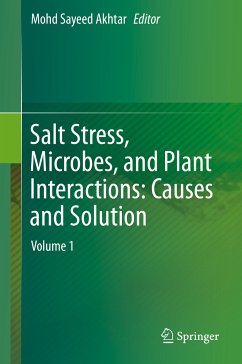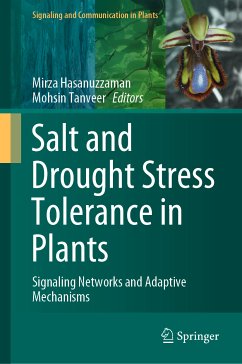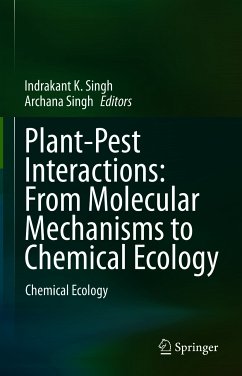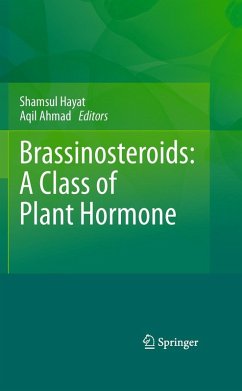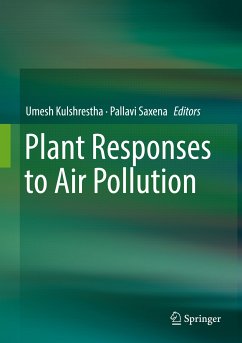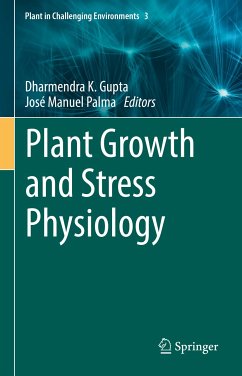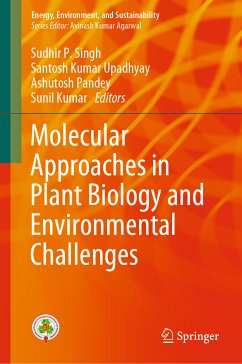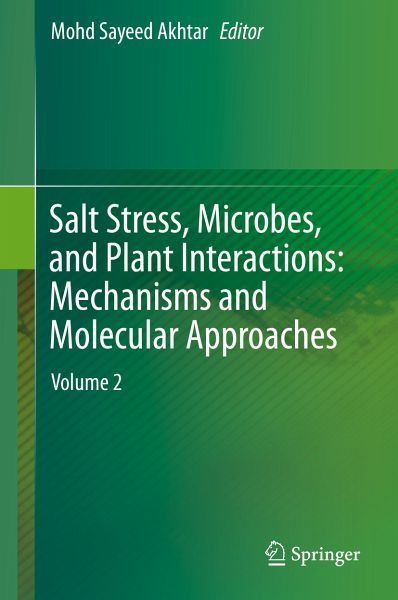
Salt Stress, Microbes, and Plant Interactions: Mechanisms and Molecular Approaches (eBook, PDF)
Volume 2
Redaktion: Akhtar, Mohd Sayeed
Versandkostenfrei!
Sofort per Download lieferbar
112,95 €
inkl. MwSt.
Weitere Ausgaben:

PAYBACK Punkte
56 °P sammeln!
This book offers an overview of salt stress, which has a devastating effect on the yields of various agricultural crops around the globe. Excessive salts in soil reduce the availability of water, inhibit metabolic processes, and affect nutrient composition, osmotic balance, and hydraulic conductivity. Plants have developed a number of tolerance mechanisms, such as various compatible solutes, polyamines, reactive oxygen species and antioxidant defense mechanisms, ion transport and compartmentalization of injurious ions. The exploitation of genetic variation, use of plant hormones, mineral nutri...
This book offers an overview of salt stress, which has a devastating effect on the yields of various agricultural crops around the globe. Excessive salts in soil reduce the availability of water, inhibit metabolic processes, and affect nutrient composition, osmotic balance, and hydraulic conductivity. Plants have developed a number of tolerance mechanisms, such as various compatible solutes, polyamines, reactive oxygen species and antioxidant defense mechanisms, ion transport and compartmentalization of injurious ions. The exploitation of genetic variation, use of plant hormones, mineral nutrients, soil microbe interactions, and other mechanical practices are of prime importance in agriculture, and as such have been the subject of multidisciplinary research.
Covering both theoretical and practical aspects, the book provides essential physiological, ecological, biochemical, environmental and molecular information as well as perspectives for future research. It is a valuable resource for students, teachers and researchers and anyone interested in agronomy, ecology, stress physiology, environmental science, crop science and molecular biology.
Covering both theoretical and practical aspects, the book provides essential physiological, ecological, biochemical, environmental and molecular information as well as perspectives for future research. It is a valuable resource for students, teachers and researchers and anyone interested in agronomy, ecology, stress physiology, environmental science, crop science and molecular biology.
Dieser Download kann aus rechtlichen Gründen nur mit Rechnungsadresse in A, B, BG, CY, CZ, D, DK, EW, E, FIN, F, GR, HR, H, IRL, I, LT, L, LR, M, NL, PL, P, R, S, SLO, SK ausgeliefert werden.



